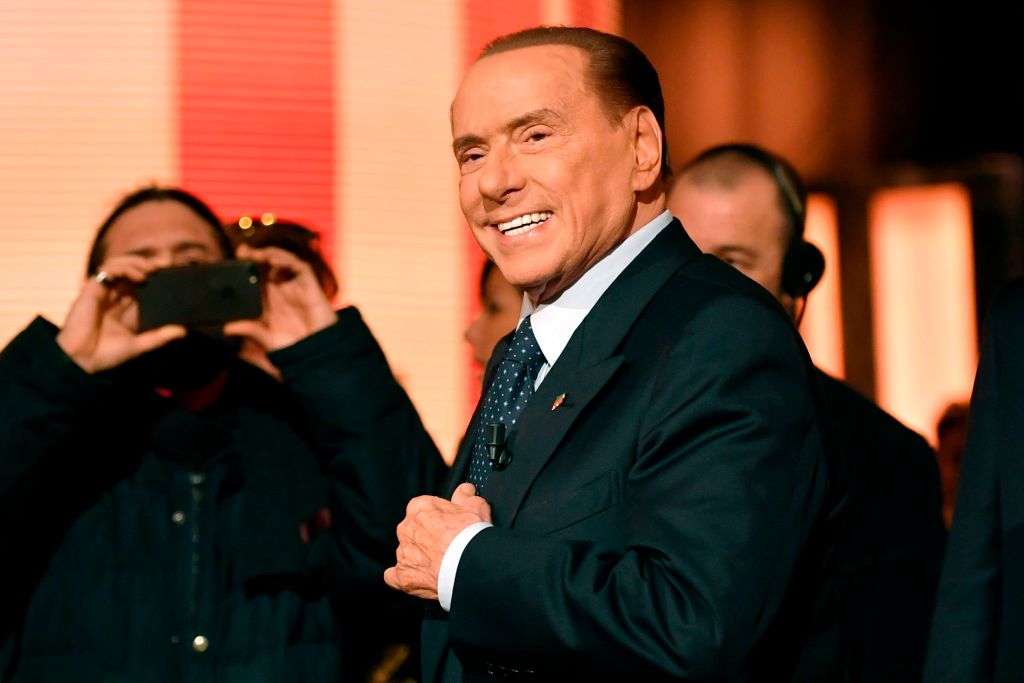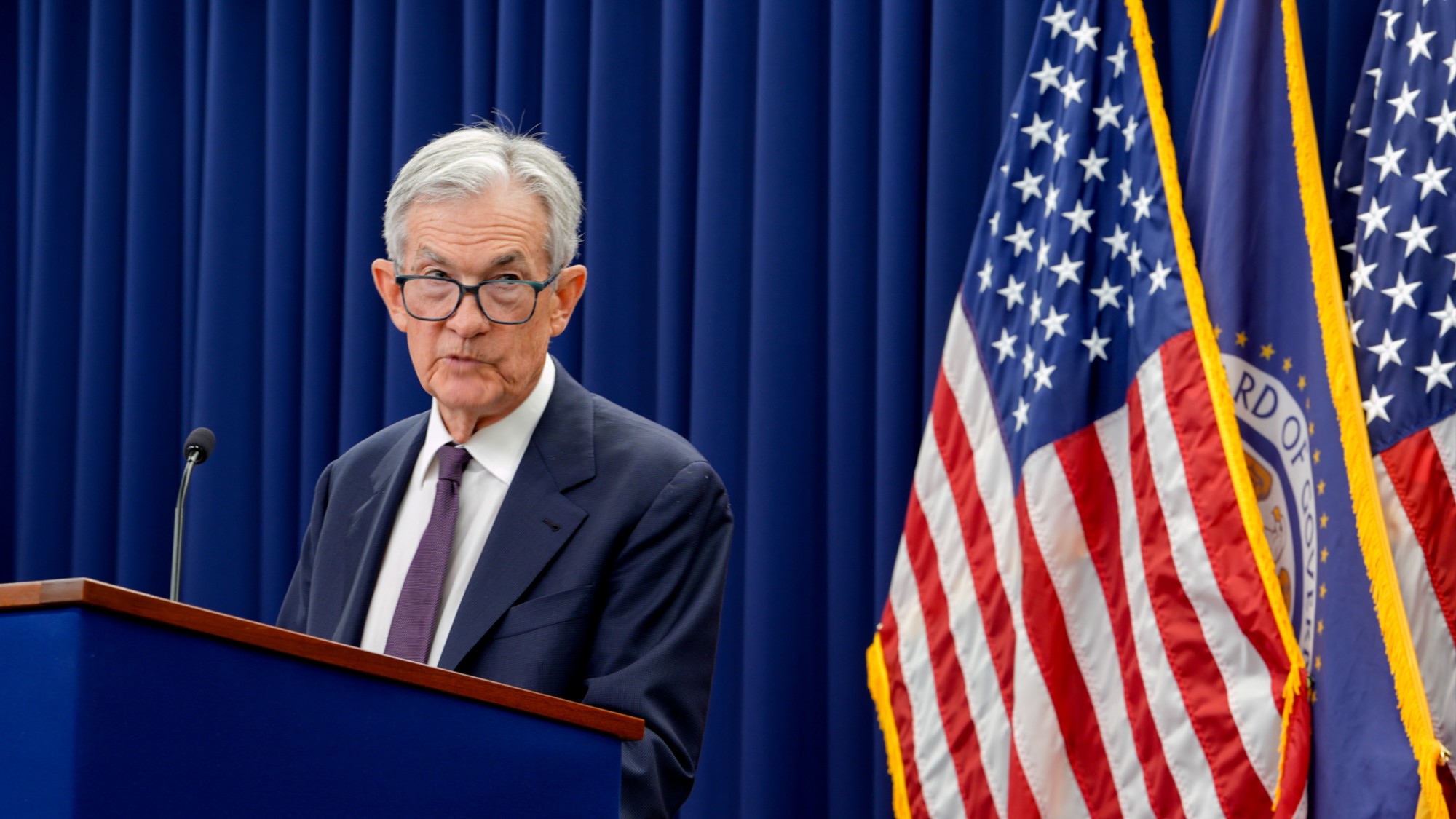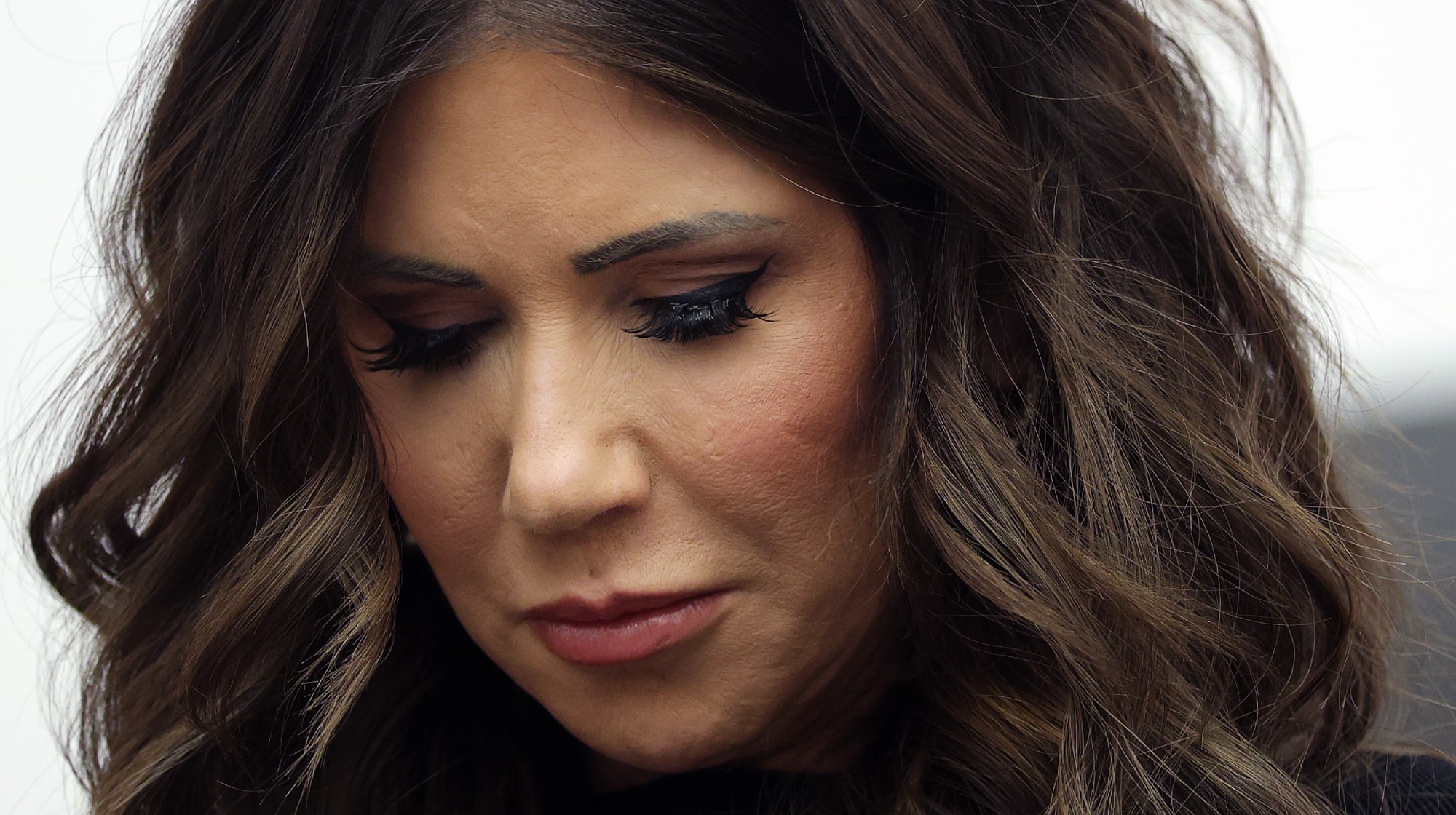Italy's Silvio Berlusconi, on the comeback trail, hates being compared to Trump


A free daily email with the biggest news stories of the day – and the best features from TheWeek.com
You are now subscribed
Your newsletter sign-up was successful
You may see similarities between President Trump and former Italian Prime Minister Silvio Berlusconi — both elderly billionaires have suspiciously tanned skin, surgically enhanced hair, reputations for active libidos, high esteem for Russia's Vladimir Putin, a penchant for mixing their business and politics, anti-immigrant politics, and a preternatural ability to drive their critics crazy. But don't tell that to Berlusconi.
The former Italian leader is making his political comeback, The New York Times reports, though his long string of business and sex scandals led Parliament to bar him from holding office until 2019, he was convicted of tax fraud in 2013, and he still faces trial for alledgedly bribing witnesses to keep silent about his sex-fueled Bunga Bunga parties. In March 4 elections, Berlusconi, 81, is expected to emerge as kingmaker, the Times' Jason Horowitz reports:
His resurrection is both astonishing and entirely unsurprising when one considers that Mr. Berlusconi has over the decades conditioned and desensitized an electorate that has picked him as prime minister three times despite, well, everything. ... In a measure of how unpredictable global politics have become, things have come back around for the pre-Trump era's leading personification of conflicts of interest, outsize appetites, and the politics of victimization and press demonization. In the age of President Trump — comparisons to whom Mr. Berlusconi cannot stand — the Italian mogul has successfully recast himself as grandfather, or nonno, to the nation. [The New York Times]
Berlusconi, who appears almost nightly on the TV stations he owns, "has been deeply reluctant to discuss" Trump, Horowitz writes, but "one person who spoke privately with the Berlusconi family" about Trump said "Berlusconi had a low opinion of the American president and disliked being compared to him." "Surely Berlusconi doesn't love it," close ally Giovanni Toti tells the Times. "It's a mistake to compare Trump to one of the most experienced statesmen in Europe." Read more about Berlusconi's improbable comeback at The New York Times.
The Week
Escape your echo chamber. Get the facts behind the news, plus analysis from multiple perspectives.

Sign up for The Week's Free Newsletters
From our morning news briefing to a weekly Good News Newsletter, get the best of The Week delivered directly to your inbox.
From our morning news briefing to a weekly Good News Newsletter, get the best of The Week delivered directly to your inbox.
A free daily email with the biggest news stories of the day – and the best features from TheWeek.com
Peter has worked as a news and culture writer and editor at The Week since the site's launch in 2008. He covers politics, world affairs, religion and cultural currents. His journalism career began as a copy editor at a financial newswire and has included editorial positions at The New York Times Magazine, Facts on File, and Oregon State University.
-
 The world’s most romantic hotels
The world’s most romantic hotelsThe Week Recommends Treetop hideaways, secluded villas and a woodland cabin – perfect settings for Valentine’s Day
-
 Democrats push for ICE accountability
Democrats push for ICE accountabilityFeature U.S. citizens shot and violently detained by immigration agents testify at Capitol Hill hearing
-
 The price of sporting glory
The price of sporting gloryFeature The Milan-Cortina Winter Olympics kicked off this week. Will Italy regret playing host?
-
 Japan’s Takaichi cements power with snap election win
Japan’s Takaichi cements power with snap election winSpeed Read President Donald Trump congratulated the conservative prime minister
-
 Trump sues IRS for $10B over tax record leaks
Trump sues IRS for $10B over tax record leaksSpeed Read The president is claiming ‘reputational and financial harm’ from leaks of his tax information between 2018 and 2020
-
 Trump, Senate Democrats reach DHS funding deal
Trump, Senate Democrats reach DHS funding dealSpeed Read The deal will fund most of the government through September and the Department of Homeland Security for two weeks
-
 Fed holds rates steady, bucking Trump pressure
Fed holds rates steady, bucking Trump pressureSpeed Read The Federal Reserve voted to keep its benchmark interest rate unchanged
-
 Judge slams ICE violations amid growing backlash
Judge slams ICE violations amid growing backlashSpeed Read ‘ICE is not a law unto itself,’ said a federal judge after the agency violated at least 96 court orders
-
 Rep. Ilhan Omar attacked with unknown liquid
Rep. Ilhan Omar attacked with unknown liquidSpeed Read This ‘small agitator isn’t going to intimidate me from doing my work’
-
 Democrats pledge Noem impeachment if not fired
Democrats pledge Noem impeachment if not firedSpeed Read Trump is publicly defending the Homeland Security secretary
-
 The billionaires’ wealth tax: a catastrophe for California?
The billionaires’ wealth tax: a catastrophe for California?Talking Point Peter Thiel and Larry Page preparing to change state residency
